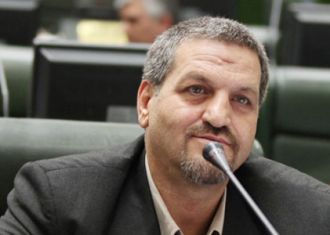Iran Snap Analysis: How Many Reformists Will Participate in the Elections?
 Mostafa KavakebianWe begin this morning with the question of the participation of reformists, the minority group in the Islamic Republic's political system, in March's Parliamentary elections.
Mostafa KavakebianWe begin this morning with the question of the participation of reformists, the minority group in the Islamic Republic's political system, in March's Parliamentary elections.
Even though the reformists are effectively blocked from being more than a minority in Parliament --- and of course blocked from the Presidency with the disputed June 2009 vote and its aftermath --- their participation has become a vital issue in the Parliamentary vote. Figures such as former President Mohammad Khatami have been setting conditions for their involvement for more than a year; none of those, such as freedom of political prisoners and freedom of political parties, have been met.
So how many reformists will carry through on the threat to stay away? Khatami has walked a careful line, calling for no fielding of candidates but also holding back from telling people not to vote. It is clear, however, that almost all reformist factions are holding that line during this week's registration of candidates. Groups such as the Islamic Iran Participation Front and the Mojahedin of Islamic Revolution, as well as Ayatollah Mousavi Khoeiniha, leading reformist political prisoners, and the detained 2009 Presidential candidate Mehdi Karroubi, have all made clear their opposition to reformists seeking Parliamentary seats.
That is bad news for elements in the regime, including the Supreme Leader's office, the Revolutionary Guards, and conservative/principlist rivals of the President, who are worried that Mahmoud Ahmadinejad's camp will use organisation and money to bring out their support and win a majority in the Majlis.
The one crumb of comfort for those groups so far is the declaration by the Mardomsalari Party, whose most prominent figure is Mostafa Kavakebian. On Monday, the party issued a statement confirming its involvement: "If well-established political groupings and political groups and parties opt out (of the elections), go into a sulk, and act passively and inertly, not only will they not be able to prepare congenial conditions for achieving their goals and ideals but also they will help newly emerged, rootless, and unpopular groupings to gain ascendancy."
That is not a huge surprise, even against the wave of reformists calling for a boycott of candidates. Kavakebian has been vocal during this past year, in response to Khatami's position, in his calls to remain in the Majlis; indeed, before that, he was far more lukewarm than his colleagues in support of challenges to the 2009 Presidential elections and the protests of the Green Movement for rights and justice.
Do he and Mardomsalari have enough weight, if not in influence within the establishment than with the Iranian people, to give the appearance of legitimacy to the elections? That will be an interesting question in the next 10 weeks.
For now, however, the regime --- or at least the elements in the regimes wishing to block Ahmadinejad --- are worried that the answer is No. It was striking how quickly Iranian media got out the news, in English as well as Persian, of Mardomsalari's statement. Both Mehr and the Tehran Times, neither of whom norrmally give much attention to the reformist party, carried the same article exalting the decision.
But even this was not as striking as other "news" that was created. Fars went farther, again in English and Persian, with the claim that Mardomsalari, the Hambastegi Party, and the Etemad-e Melli Party have held a series of meetings to form a coalition for the parliamentary elections.
There is no evidence of such a manoeuvre. Etemad-e Melli has been led by Mehdi Karroubi, shut away in strict house arrest since February, and was effectively broken up by the regime in autumn 2010. (On a related propaganda note, Fars was quick to spin the allegation that Karroubi's statement on Monday, denouncing the elections, must have been made up by the BBC.) A senior member of Etemad-e Melli, Rasoul Montajabnia, soon announced that the Fars report was a propaganda fiction and that no candidates would be registered.
That propaganda has a time limit. The registration period for candidates ends this weekend, and we should have a clearer idea if any other reformist parties will back down and join the campaign and --- more likely --- if some reformist MPs will stand as independents.
Then the next phase of claiming legitimacy will begin. Look for Mardomsalari to get its moment of exposure, and for Kavakebian to get his reward, with political rivals praising their honourable decision to stand for election. Look for calls on the Guardian Council not to disqualify those reformists, and other candidates, who can block victories of pro-Ahmadinejad aspirants. And look for other signs of concern among the President's rivals, including those who are not far from the Supreme Leader.

 Tuesday, December 27, 2011 at 6:18
Tuesday, December 27, 2011 at 6:18
Reader Comments